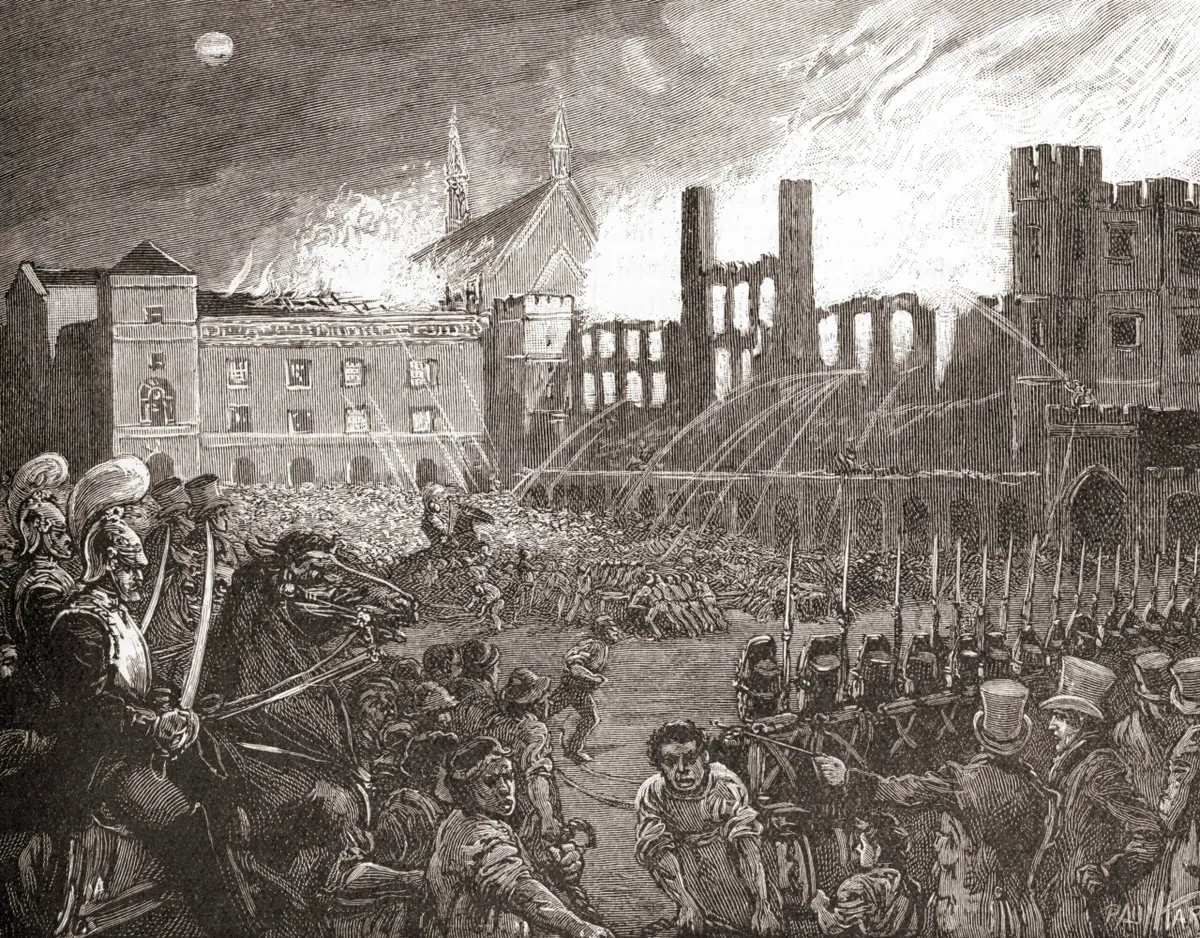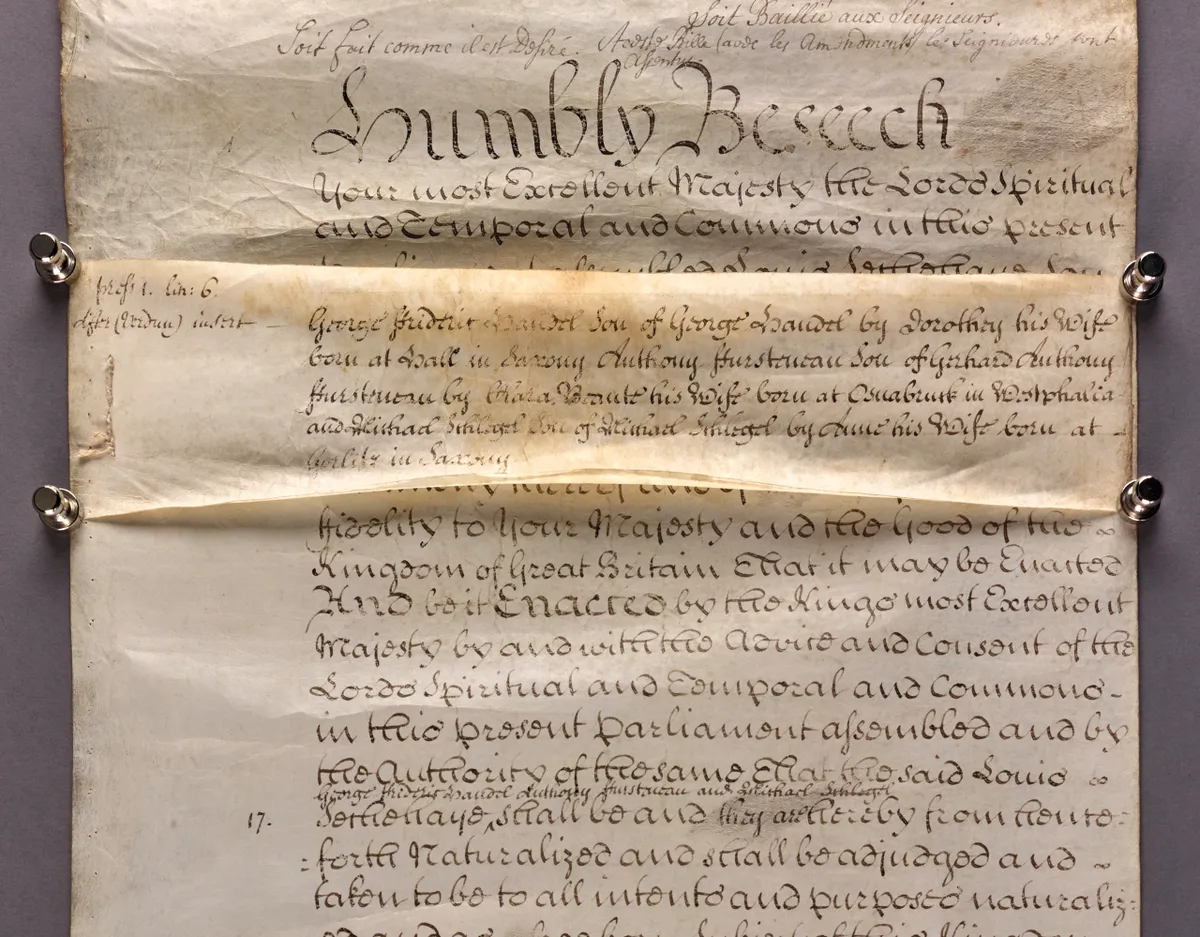The Parliamentary Archives: What is it?
The Parliamentary Archives is based in the Victoria Tower of the Palace of Westminster, and holds approximately four million records. The collections are diverse, encompassing five main areas: the House of Commons and the House of Lords; the Palace of Westminster; Societies and Staff; Private Papers; and the UK Parliament Web Archive. The Parliamentary Archives is now moving its collections to The National Archives at Kew, although most of its material will continue to be accessible at Westminster until June 2024. Wherever it’s located, the Parliamentary Archives is an exciting and rich resource that allows researchers to explore the history of the nation.
The Parliamentary Archives: When was it founded?
Records have been kept in Westminster since 1497 when Master Richard Hatton, clerk of the Parliaments, decided to retain the Acts passed that year in the Palace. Prior to this, records had been transferred to the Chancery along with government records.
The earliest record in the Parliamentary Archives’ collections is ‘An Act for Taking of Apprentices to Make Worsteds in the County of Norfolk’. What follows is a complete set of records of the House of Lords. By contrast, the records of the House of Commons largely date from 1834 onwards, as the Great Fire of Westminster that broke out on 16 October of that year destroyed most of the records held in the Palace. Only 231 manuscript journals from the Commons survived the fire.
Read the full version of this article in our latest issue

Fortunately, the records of the House of Lords were stored opposite the Palace in the Jewel Tower (which is now owned by English Heritage), and were saved. These records, and the surviving Commons records, were then moved to the Victoria Tower following its completion in 1860; designed by Charles Barry, at the time it was known as the King’s Tower in honour of William IV.
Parliamentary Archives: Types of records
Although the Parliamentary Archives is largely concerned with kings, queens, ministers, MPs and peers, many of its records provide glimpses into the lives of ordinary people.
Acts of Parliament can be divided into three categories: Public, Private and Local. Public Acts affect wider society, while Private and Local Acts affect small groups, or in some cases single individuals. Their effects are therefore more limited and localised.
Parliamentary Archives: Naturalisation records
One example is Acts that naturalise foreign nationals. Prior to 1844 foreign nationals who wished to become British subjects could only do so by obtaining a private Act of Parliament. More than 1,000 such Acts were passed, the earliest dating from 1588. Acts could naturalise just one individual, or in some cases entire families. Individuals unknown to each other could also be grouped together in the same Act, as happened with Nicholas Wayfoort, Peter Le Blanc and Jacob Sanderfelt in 1702.
The precise content of each naturalisation Act varies. Some provide details of where the individual was born, where they were residing at the time, and others include the names of family members. This is particularly the case if a child was being naturalised. Similarly, if an individual held a prominent place in society then their occupation may also be listed. Naturalisation Acts can therefore tell us not just when someone was naturalised, but also provide valuable insight into these individuals’ lives.
Supporting documentation also survives for some Acts, including drafts and certificates. These can be found among the House of Lords Main Papers at the Parliamentary Archives.
In nearly all cases the individuals named in the Act have been listed in the catalogue description, so identifying relevant Acts is as easy as searching the online catalogue via the homepage of the Parliamentary Archives’ website.

Parliamentary Archives: Divorce records
Before 1857, wealthy individuals could obtain a divorce through a Private Act of Parliament. Between 1700 and 1857 314 Acts were passed that granted parties a full divorce, ie one that allowed remarriage. In England and Wales divorce was granted only for adultery, and a women could initiate proceedings only if adultery was compounded by life-threatening cruelty. As such, most cases were brought forward by men. The first divorce Act to be obtained by a woman was passed in 1801 when Jane Campbell divorced her husband on account of his adultery with her sister.
Parliamentary Archives: Protestation Returns
In 1642, during the growing religious and political tension that led to the first English Civil War, the House of Commons ordered all adult men to swear an oath of allegiance to the Protestant religion. Their names were duly inscribed on a list for each parish, and the list sent back to Parliament. These Protestation Returns are now the closest thing to census records available for the 17th century.
As well as listing those who did take the oath, some returns also list those who didn’t, and annotations on some returns provide anecdotal information about individuals. For example, in the parish of Aighton, Bailey and Chaigley in Lancashire, Edward Bradhill was “lame and not able to come”, Richard Marsden was “bedridden”, and Richard Walker senior was “deaf and blind”. Unfortunately, not all of the returns are as detailed as this, but where this information is present it grants an insight into the lives of everyday individuals across the country.
Returns survive for about a third of English counties and are organised by county, then town or parish. To make the returns held by the Parliamentary Archives as accessible as possible they have been digitised and made available online via the catalogue. Transcriptions of the names recorded on each return are also being added to the catalogue.